Readers talk about how Great Ormond Street Hospital gave them hope – and life
Since the launch of our Give to GOSH appeal, dozens of patients and famillies have written to share their experiences
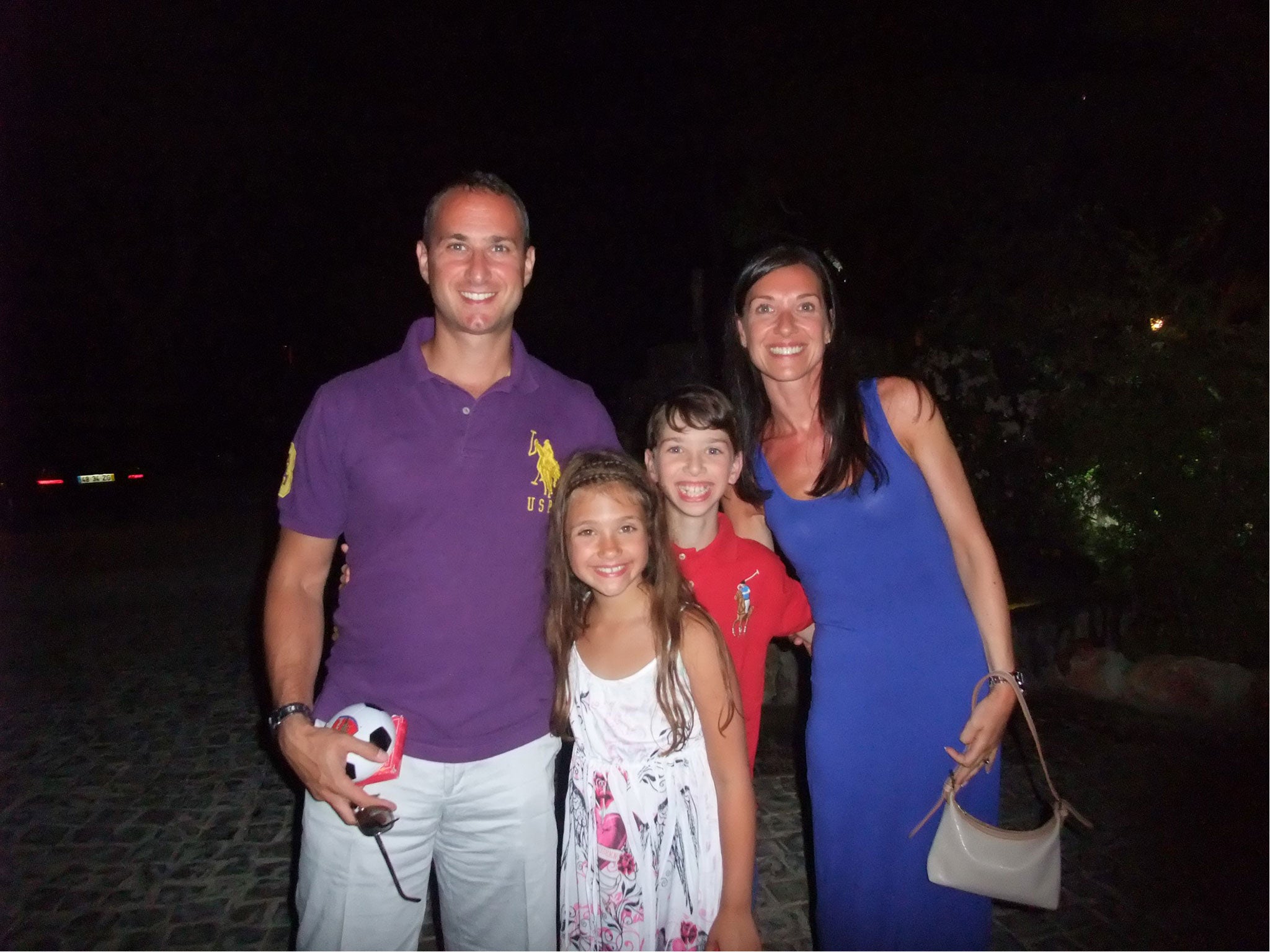
The Mother
Alisa Gold, 41, Borehamwood, Hertfordshire.
Alisa’s son, Daniel, was born in 2003 with his liver and bowel outside his body. The rare condition – exomphalos – was diagnosed in the womb; when he was born there were nearly 30 people in the room to support his delivery, at the Royal Free London Hospital, before he was rushed to GOSH.
After years of monitoring and treatment, Daniel, now 12, has little more than a scar to remind him of his trauma. The family has recently raised thousands of pounds for Great Ormond Street.
“We went for a 12-week pregnancy scan and it was apparent quite quickly that something was not quite right, because the doctor was sufficiently concerned to bring in the head consultant, who came and did a scan and advised us that he thought it was exomphalos.
“When Daniel was born I was not allowed to hold him. They showed him to me then put him in an incubator and took him in an ambulance to Great Ormond Street – they operated on him immediately. I support GOSH because without them I would not have him.”
The Patient
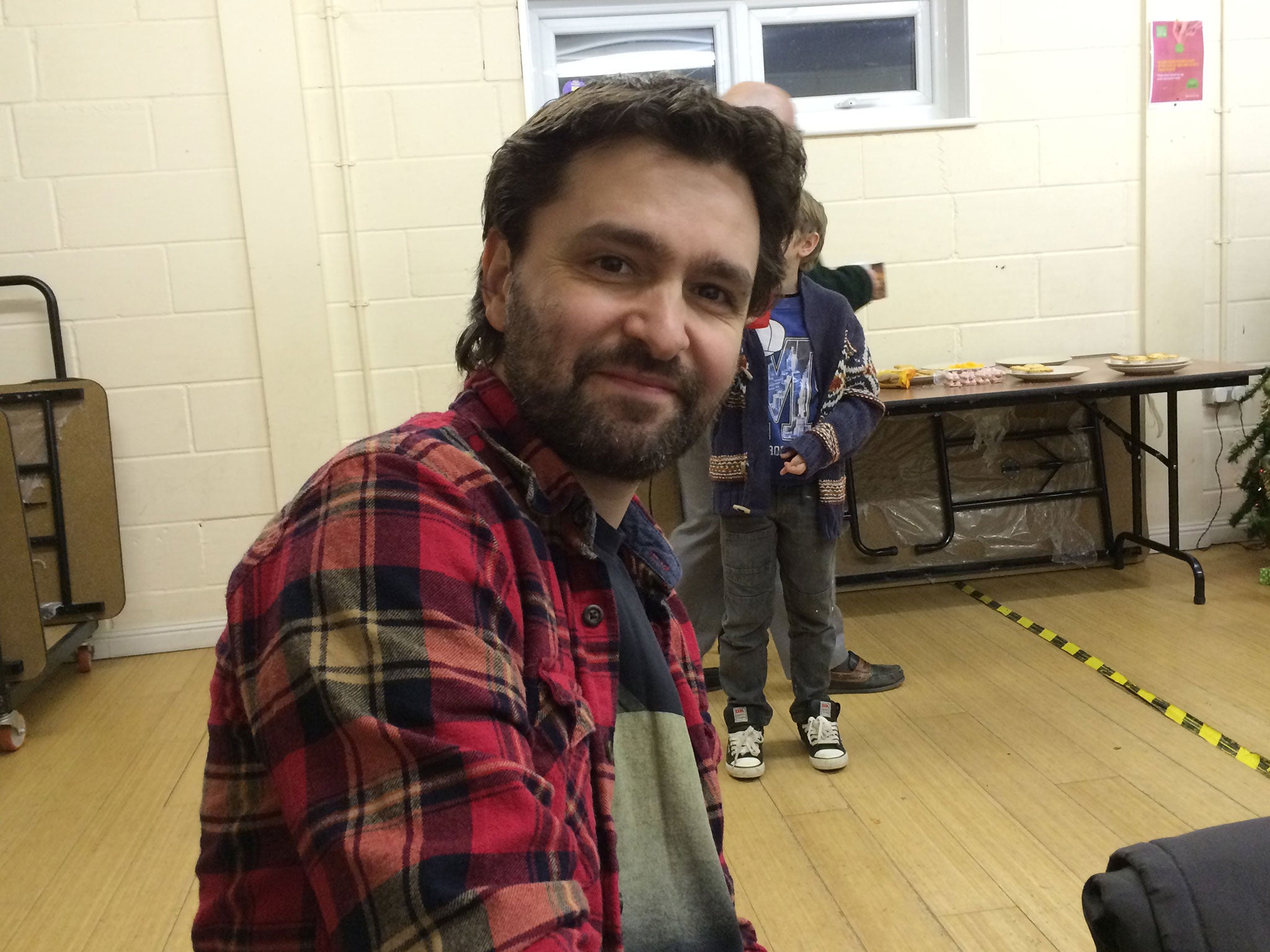
Matthew Norman, 41, Colchester, Essex.
In 1977 Matthew was just three years old when his lungs collapsed and he was rushed to Great Ormond Street Hospital, where he spent the next year of his life.
“I had a condition known at the time as Histiocytosis X, although now it’s known as Langerhans cell histiocytosis (LCH). This is a rare disease – about 50 children a year develop it – and when I first started having breathing difficulties not a single GP I was taken to realised the seriousness of my condition.
“My lungs were constantly in danger of collapse .... Eventually I had a risky procedure called a pleurodesis, where my lungs were “glued” to my chest wall.
“When I was 10 my lungs became unstuck and collapsed again, and I was rushed back to GOSH. But there have been no repeat incidents. My odds of surviving were written off by many doctors when I was a toddler, which is going to make my 42nd birthday that’s coming up that bit more special.
“I didn’t really have a proper childhood, I was restricted from doing many things – like playing sports or going to the beach. My lungs also have half the capacity they’re supposed to, but I’ve managed. In my thirties I worked for the NHS, but had to give it up to be full-time carer for my wife, who is disabled with a neurological issue. We have a nine-year-old and we’re planning another child, perhaps through adoption.
“We started a children’s charity last autumn – the Perkins Family Trust. Our aim is to make the lives of disadvantaged children and their families a little brighter. We’ve just finished collecting toy donations for a women’s refuge ... and will soon be handing over a huge collection of toys to refugees resettling in the local area.”
The Father
Marco Previero, 43, Tunbridge Wells, Kent.
Marco’s daughter Millie was rushed to Great Ormond Street in April 2013 when an undiagnosed brain tumour rendered her blind overnight. The seven-year-old (above, with her father, mother Vanessa and sister and brother, Ellie and Luca) is now in remission.
“On the Saturday in April 2013 that Millie lost her vision, she was urgently seen by GOSH’s lead neurosurgeon, who confirmed that the tumour was pressing on her optic nerves, killing them. This would lead to permanent blindness. There was only one option, to open her skull [they operated on the Sunday] during a procedure lasting several hours, to debulk the lump. A brain operation has risks – strokes, even death. But I instinctively sensed the neurosurgeon and his team were acting in Millie’s best interest. I would quickly discover that ‘the child first and always’ was not just a motto at GOSH but a principle guiding each and every decision that was made to save Millie’s eyesight and, ultimately, her life.”
The Patient
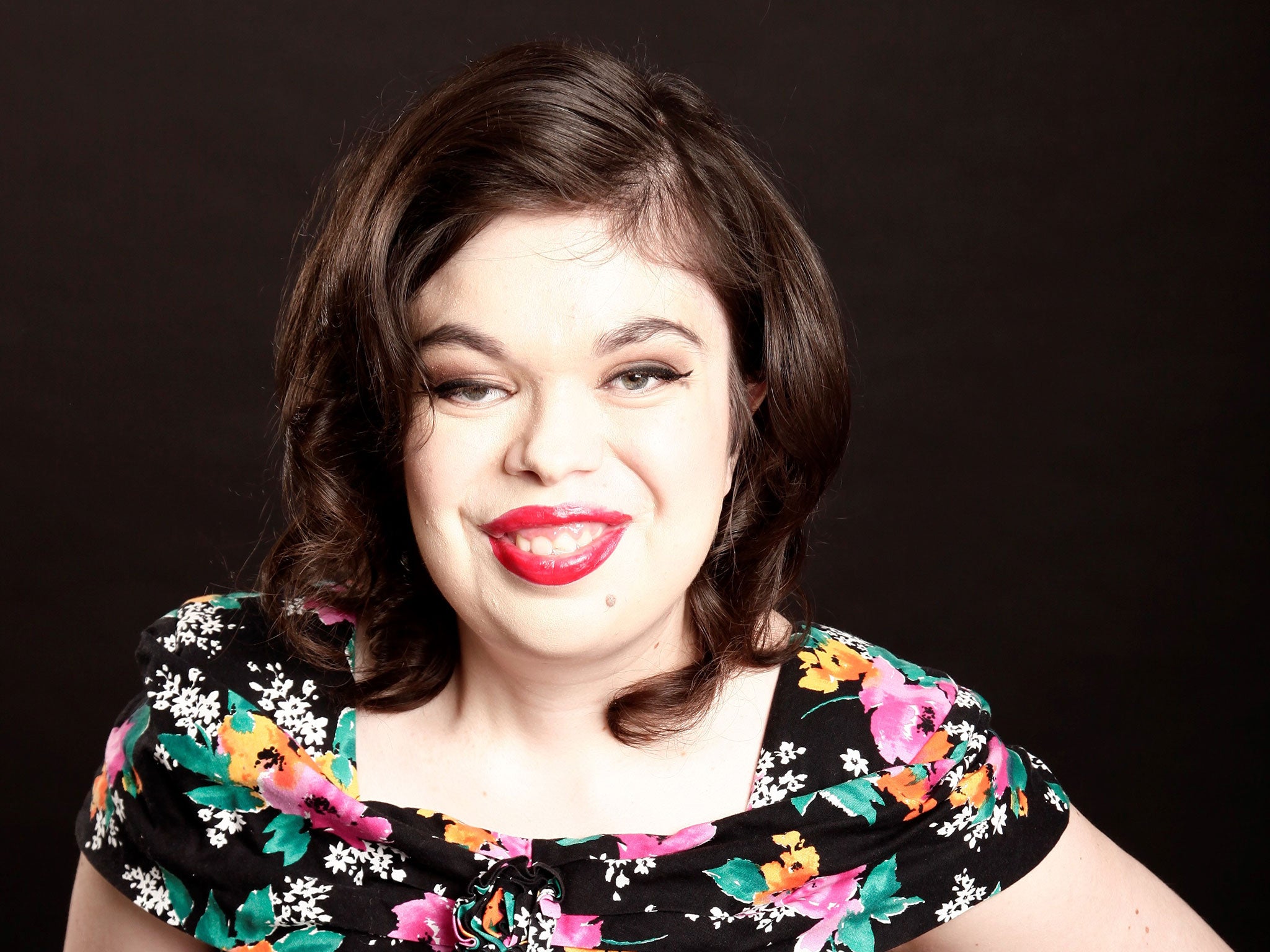
Elena Reading, 21, Brighton, East Sussex.
Elena has received treatment at GOSH for most of her life. She was born with a rare genetic condition known as Crouzon syndrome, which meant her skull was deformed and her eyes couldn’t close properly because of the abnormal development of their sockets. Before the age of three Elena had undergone major facial surgery and at 11 she had to wear something known as a rigid external distraction, or RED frame, to help reshape her skull.
“I have nothing but great things to say about GOSH. I’ve been there for the past 21 years and I think without their medical intervention I would have had a completely different life. The good thing about GOSH is that all the doctors I’ve had since I was two, I’ve had for all this last year. It means it is less daunting, more like they’re your extended family. My parents would always say that it was like having another daughter. That’s how dramatic the change was. If I was a child now I don’t think I would recognise myself in the future.”
The Sister
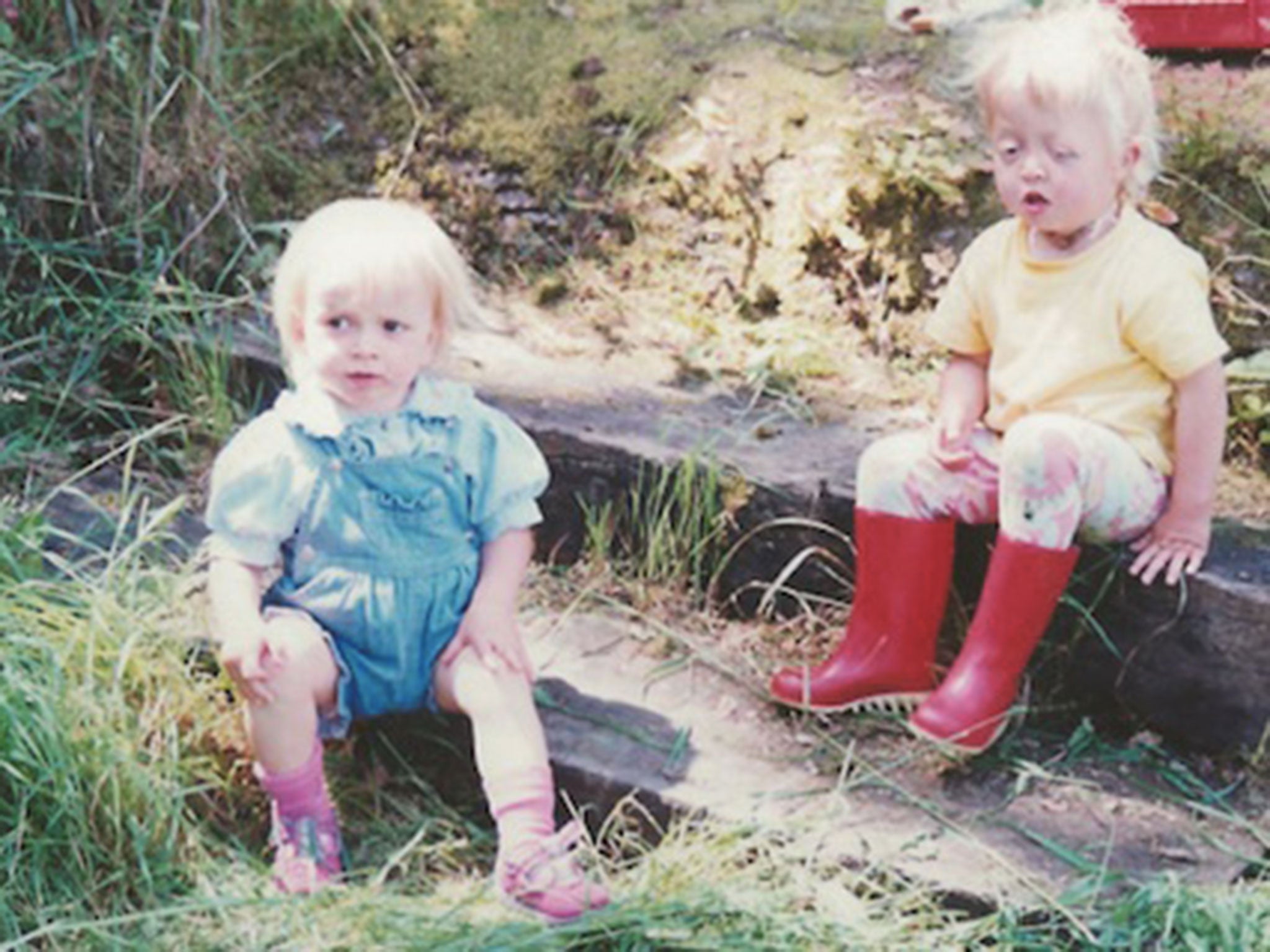
Lamorna Lindfield, now 23, Saltash, Cornwall.
Lamorna’s sister Hannah was born with a very rare genetic condition called Pfeiffer syndrome.
“The syndrome fuses the bones in the skull, causing the brain to develop in abnormal ways. This causes problems with hearing, breathing and seeing, although it can affect other areas of the body too.
“GOSH’s surgeons operated on my sister when she was five days old to alleviate the pressure building in her head. She was fitted with a shunt, to help the flow of fluid around her brain. GOSH also helped her breathe more freely by fitting a tracheostomy, and fitted a complicated frame for her face. This slowly pulled her facial bones together so they could settle in a more normal structure. In her childhood she underwent over 100 procedures involving general anaesthetic.
“The hospital also helped her psychologically. The nurses and surgeons gave her the love and respect she deserved, allowing her to see light through very dark times. Unfortunately, in November 2014, a few months after turning 23, my sister took the decision [to stop] any further treatment, which she knew would result in her death.
“At the time Hannah was being treated for problems with her breathing and shunt complications while being treated as an adult at the Derriford Hospital in Plymouth. She was a fighter and had always been set on pushing through when things were tough, but was exhausted with trying to fight against the odds, and decided it was her time to go. The pain of living with her syndrome had gotten too much.
“My sister led a short life, but I have no doubt whatsoever that she would have a lived a much shorter and more painful life if it wasn’t for everyone at GOSH. I will forever be grateful to them.”

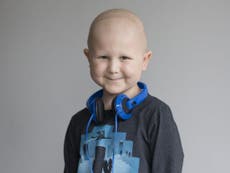
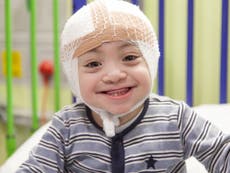
Join our commenting forum
Join thought-provoking conversations, follow other Independent readers and see their replies